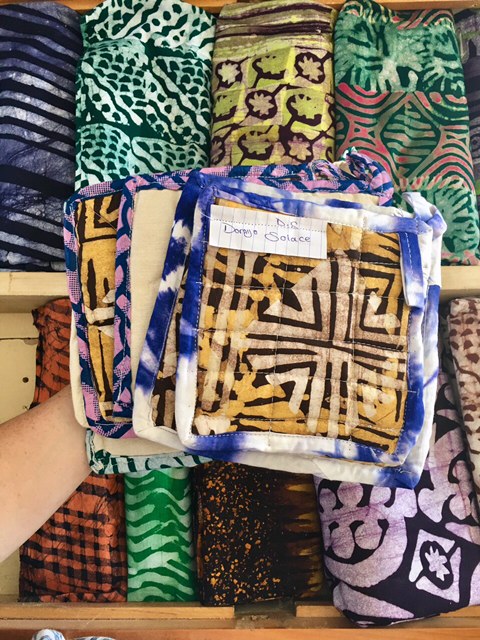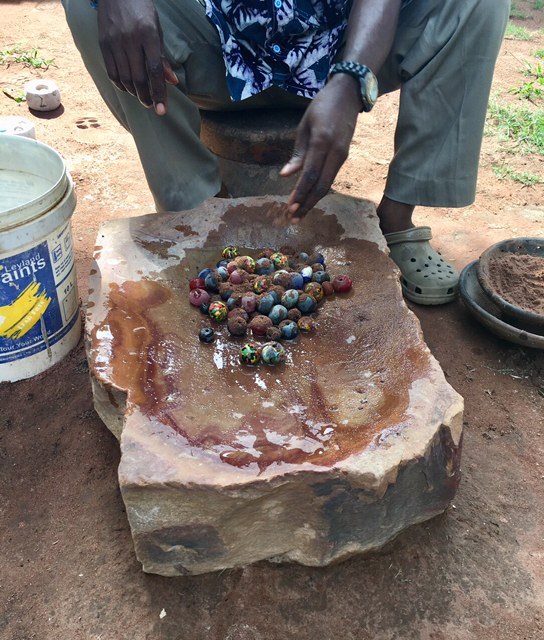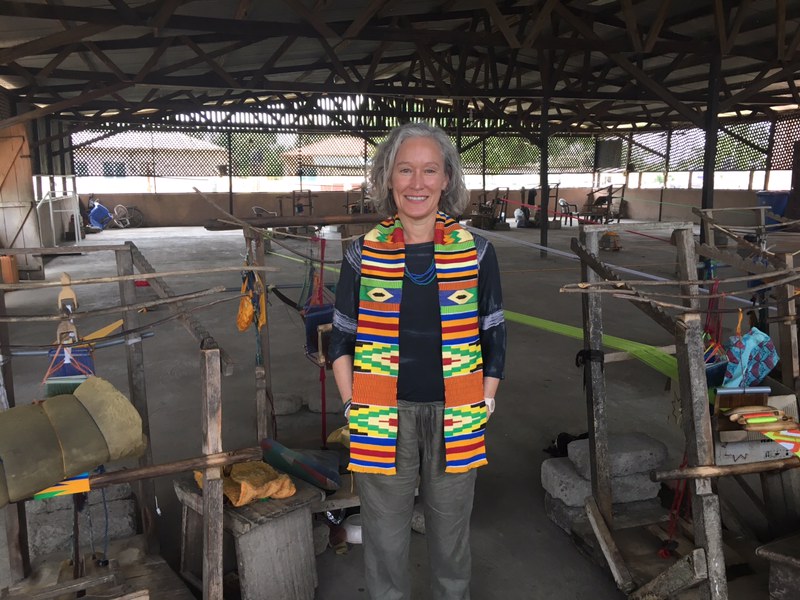Ghana Travel Seminar: Handcrafts with personality and stories

BY CATHERINE PARLER
The streets of Ghana are filled with folks hoping to make a living by selling all types of goods – bananas, hats, eggs, toilet paper, and more. For most daily necessities, it seems one can simply lean out their car window or walk down the street and find exactly what they need. Observing this, we have been able to learn so much about Ghanaian culture just from driving and walking around.
However, set back from the main thoroughfares are the galleries, factories, shops, and homes of deeply talented local artisans. Over the past couple of days, we have had numerous opportunities to engage with and learn from Ghanaians who are still practicing ancient handcrafts.
We visited the Cedi Bead Factory and were shown, by Cedi himself, the art of bead-making from recycled glass bottles – an art Cedi said has been in his family for generations. After observing the ancient bead-making process, we had the treat of getting to play with Cedi’s children and talk with his wife and daughters as they prepared dinner. When we had the opportunity to purchase jewelry before leaving, we were not just moved by the beauty of the pieces, we also fully appreciated the handcrafting process and had formed relationships with those whom our purchases were benefitting.

Cedi Bead Factory
One of many ministries under the umbrella of the Evangelical Presbyterian Church of Ghana is a center that provides support, education, and job training for teenage mothers. Within their curriculum, the women are taught various crafts that are central to Ghanaian culture. Specifically, they are taught the art of batik dyeing. As a way of supporting the cost it takes to learn these crafts, the women sell their products. Each craft has the artist’s name attached, and therefore, what we bring home will not just remind us of our Ghanaian adventures, they will also tangibly connect us with these women across the world.
We also visited a Kente Cloth factory, where a family is still practicing the ancient art of Kente Cloth Making, said to have originated in that region. We watched one man’s hands speedily maneuver the thread on the loom and each of us tried on dozens of pieces to see if they’d be long enough to be stoles. While we had seen imitation Kente Cloth around the country, this gave us the opportunity to learn what it truly looks like and about its detailed creation process. And, once again, we were personally engaging with the artists and their family, knowing exactly who we would be supporting and connected to with our purchases.

Student Jen Brothers at Kpetoe Weaving Center.
The crafts we’ve purchased each have personality and each have stories. We hope to share those stories, share the humanity and beauty of those in Ghana, and ultimately, tie closer the bonds of those within the body of Christ through handcrafted art.
Catherine Parler is a Master of Divinity student at the Richmond campus of Union Presbyterian Seminary.

